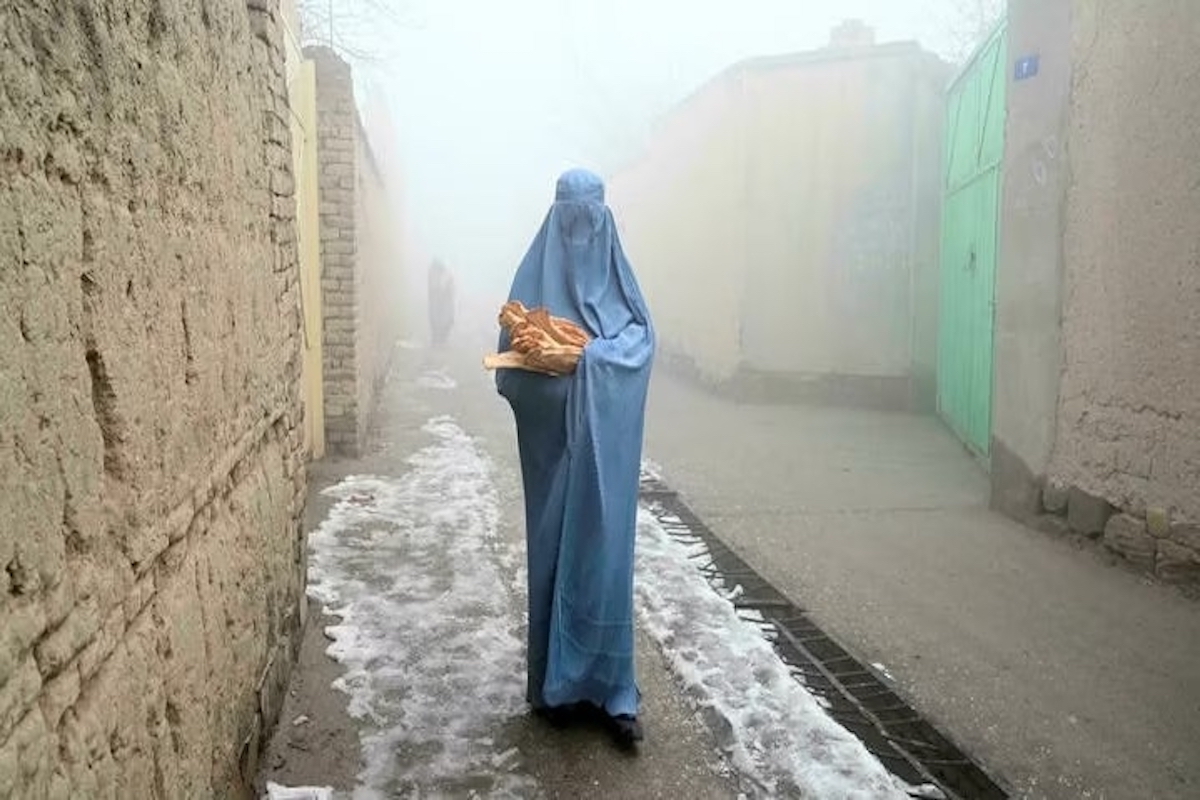The international community has slammed new rules set by the the Taliban-led government in Afghanistan over women’s face coverings or hijab, which will be implemented in two steps — encouragement and punishment, according to media reports.
In a statement on Saturday, the Taliban’s Ministry for the Propagation of Virtue and the Prevention of Vice said that if a woman did not cover her face outside the home, her father or closest male relative would be summoned and eventually incarcerated or fired from government jobs, reports Khaama Press.
Advertisement
The mandate is adopted “in order to avoid provocation when meeting men who are not Mahram”, according to the Ministry.
Mahram is a person who is allowed by Islam to stay with women without any need for coverings of the veil.
Under the first step, authorities will “locate the residences of unveiled ladies and to counsel and warn the women’s parents”.
“The woman’s father or guardian is summoned to the relevant department in the second stage, and in the following steps, a case is lodged against the woman’s father or parents, and the person’s trial begins,” the Ministry statement said
The all-encompassing blue burqa, ‘Chadari’, which became a global symbol of the Taliban’s previous extremist rule from 1996 to 2001, was by the government proposed as a suitable covering.
The statement further said that in case if there is no important work outside, women “better stay at home”.
Slamming the move, UN Secretary-General Antonio Guterres said he is “alarmed” that “women must cover their faces in public and leave home only in cases of necessity”.
“I once again urge the Taliban to keep their promises to Afghan women and girls, and their obligations under international human rights law,” TOLO News quoted the UN chief as saying on Sunday.
Rina Amiri, the US special envoy for Afghan women, girls and human rights, said the “Taliban continue to adopt policies oppressing women and girls as a substitute for addressing the economic crisis and need for inclusive government”.
The UN Assistance Mission in Afghanistan (UNAMA) also expressed concerns and said it will immediately request meetings with Taliban officials to seek clarification on the status of the decision.
“This decision contradicts numerous assurances regarding respect for and protection of all Afghans’ human rights, including those of women and girls, that had been provided to the international community by Taliban representatives during discussions and negotiations over the past decade.
“These assurances were repeated following the Taliban takeover in August 2021, that women would be afforded their rights, whether in work, education, or society at large,” the Mission added.
Jasper Wieck, special envoy of Germany for Afghanistan and Pakistan, said that “all human beings are born free and equal in dignity and rights”.
Also condemning the new rules, Hugo Shorter, Charge d’Affaires a.i., UK Mission to Afghanistan, said the “Afghan society and economy cannot thrive while half the population is excluded”.











